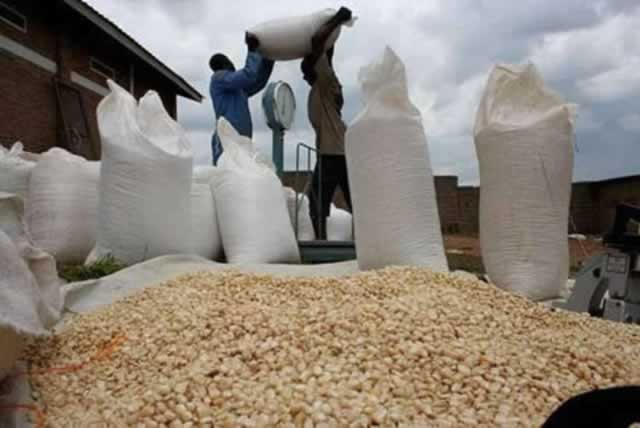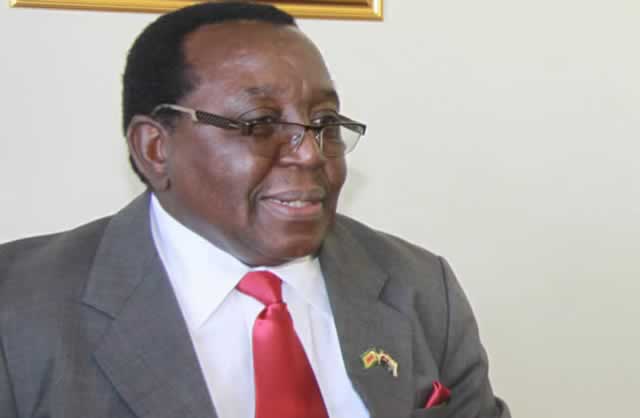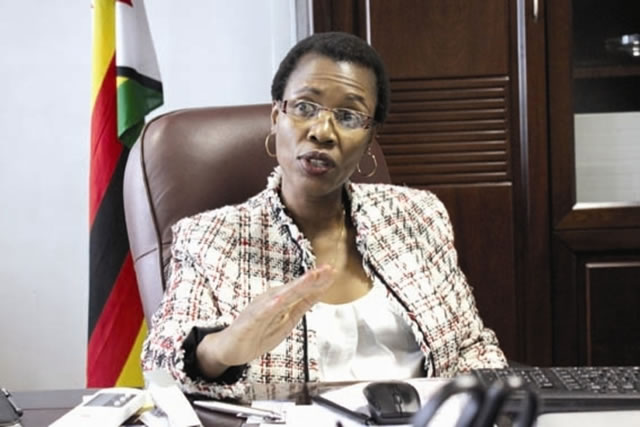GMO+ scandal rocks food sector . . . Vice President Mujuru sucked in

 Herald Reporters
Herald Reporters
The Grain Marketing Board imported over 52 000 tonnes of GMO+ maize recently from South Africa at a cost of $180 per tonne that it sold to millers at a whopping $390 per tonne, realising astronomical profits that sources close to developments say point to more than individual enrichment.
The deal involved a neatly woven cartel involving GMB boss Mr Albert Mandizha and Vice President Joice Mujuru’s confidant and close ally, Agriculture, Mechanisation and Irrigation Development Secretary Mr Ringson Chitsiko among other officials, sources revealed yesterday.
“The quantum of funds involved here is worrying and are beyond individual enrichment.
ALSO SEE
-
Zesa funds used to bankroll Mujuru
-
Govt tightens controls on GMO imports
-
Zim imports 121 000mt of GM maize
-
No to GMOs, Quton warned
-
GMO policy needs clarity
-
GMOs – Capitalism gone really bad
“They point to a bigger fundraising plan. It is indeed that Zimbabwe’s staple food management machinery is being managed by self-serving individuals at the expense of national food security,” read documents in The Herald’s possession.
The GMO+ grain imports were done in defiance of a Government ban on such imports.
Mr Chitsiko on April 30 this year, conveniently announced a national ban on maize imports citing pending local maize harvest, soon after harvesting his own crop.
However, the imported GMO+ maize found its way into milling companies like National Foods as late as November 30, which in turn processed and resold it to food processing companies and unsuspecting customers.
Ousted Mashonaland East chairman Cde Ray Kaukonde, has a huge stake in National Foods, and has been a conduit of funds into VP Mujuru’s political activities.
Nestle Zimbabwe is reported to have had one of its cereal products test positive for GMOs, culminating in a row with National Foods, sources say.
The Herald has it on good authority that despite the ban, GMO+ maize was imported into the country as late as November 30 this year.
It has also emerged that GMB board appointed by Zanu-PF’s suspended spokesperson Cde Rugare Gumbo when he was Agriculture Minister, bought maize from farmers at $375, but later sold it at $150 per tonne on the pretext it had declined in quality due to poor storage facilities.
The profits accruing from the maize are believed to have been used to fund factional activities.
Government suffered serious loss after it had advanced to GMB $34 million for the purchase of the 90 000 tonnes, but realised $13,5 million.
This translated to a $20,5 million loss.
Rugare Gumbo, who has since been suspended from party activities for five years, was one of the ring leaders of the Mujuru cabal and he could have used his influence as minister on the GMB board to engage in the illegal activities to fund the disgraced VP’s ambitions.
This was a scandal of major proportions which had a serious impact on the lives of ordinary Zimbabweans, it is alleged.
“The emergence of statistics indicating that 52 000 tonnes of GMO+ maize were imported during the harvesting time in Zimbabwe is, to say the least, a scandal,” reads the document.
“The population of Zimbabwe was subjected to GMO+ maize unknowingly believing that the maize was made from local organic maize.
“The intention to issue permits by Mr Chitsiko (VP Mujuru’s confidante) during the night smacks of corruption and nepotism. GMO+ maize is landing at circa $180 per tonne and it prejudiced local farmers who were asking for higher price…Chitsiko is believed to have received tremendous farming inputs from beneficiaries of these permits for 2014/5 worth more than $300 000.”
Mr Chitsiko was involved in the deals without the knowledge of, Agriculture, Mechanisation and Irrigation Development Minister Dr Joseph Made.
“The controversial Statutory Instrument, which was even condemned by the deputy Attorney General Advocate Machaya in his legal opinion to Chitsiko, fixing maize prices, was gazetted by Chitsiko a week soon after he harvested his own maize,” reads the document.
“Chitsiko did this without the knowledge and consent of Minister of Agriculture. To date, Minister Made has never issued a statement supporting it.”
Queries are being raised why management at GMB received and stored maize in non-functioning storage facilities, if it was not a deliberate move to condemn the maize and sell it at less prices to carefully selected millers which were in line with the regime change agenda.
“Were they aware of the problem and proceeded to reconcile with the ensuing result that maize was going to degrade? On the other hand, whilst there may have been some maize affected in storage, the occurrence was also abused by GMB management to also sell some good maize at low prices and shared the spoils with the buyers. A number of key staff was mysteriously dismissed because they knew too much,” reads the document.
Mr Chitsiko was evasive when contacted over the matter yesterday.
“I am in Rome, Italy, you may talk to the acting permanent secretary,” he said.
Even when it was clarified to him that the story essentially pertained to him, he still refused to comment.
In 2011, VP Mujuru directed Mr Chitsiko to issue her family business with a permit to import chickens from Brazil despite a Government ban on such imports, and is embroiled in a $4million scandal after evading customs duty for one of her consignments.
Grain Millers Association of Zimbabwe chairman Mr Tafadzwa Musarara, yesterday said it was important to level the playing field and effect the maize import ban on everyone.
Another player in the industry Mr Codram Cloete, said information from the South African Grain Information Services (SAGIS) website confirmed that Zimbabwe imported maize despite the ban.
“If you go on internet and look at SAGIS, maize was imported from South Africa to Zimbabwe. I think there is need to be a level playing field. It (permit) cannot be given to some players and not to others,” said Mr Cloete.
He confirmed that he once demanded an explanation from Mr Chitsiko over the disparity.
Former Nestle Zimbabwe managing director Mr Kumbirai Katsande, whose company used to buy its maize from National Foods, refused to comment over the matter, saying he left the company in September.
Efforts to get comment from National foods operations executive Chipo Nheta were unsuccessful.
Sources, however, said yesterday that some products that were procured by Nestle Zimbabwe from National Foods were tested and proved to contain GMOs and were rejected.











Comments